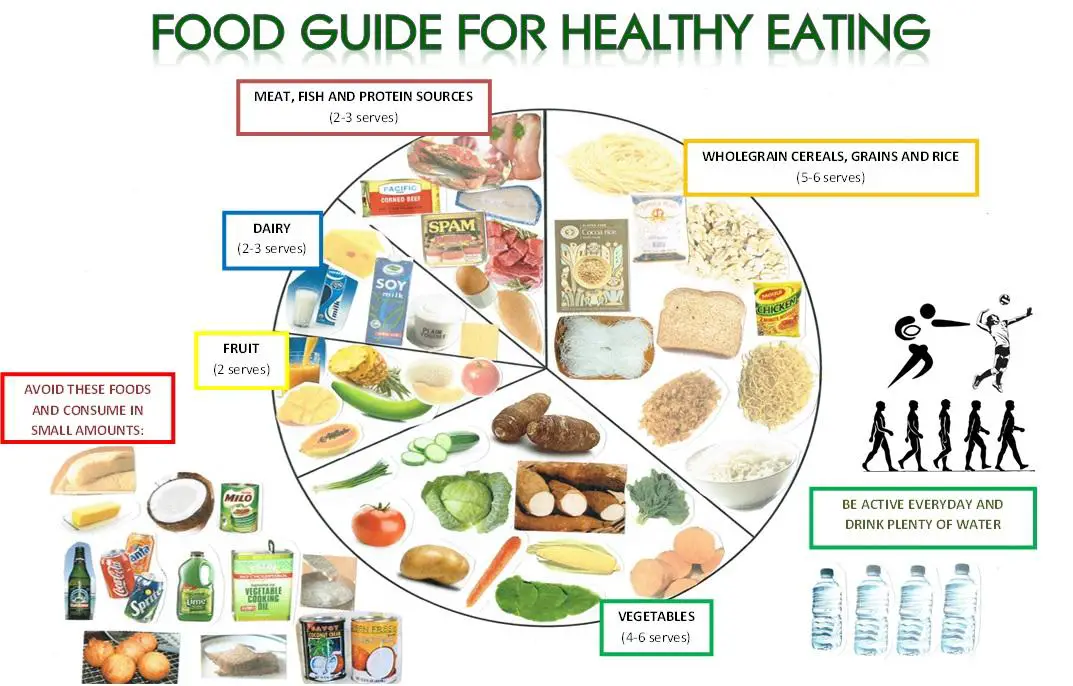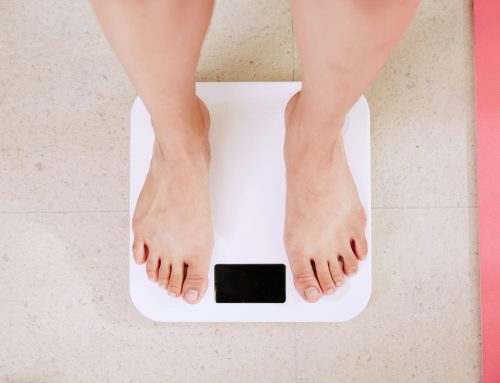Have you ever noticed how every time you finish a pint of ice cream, you simultaneously feel a wave of guilt and a sense of impending doom? Or how you suddenly become an Olympic-level sprinter when you’re late for work and the bus is pulling away? Turns out, there’s a reason for these seemingly random connections between what we eat, how we move, and our mental well-being. In this article, we’ll dive into the bizarre and entertaining world of the link between diet, exercise, and mental health – because apparently, that kale salad might just be the key to solving all your problems. Grab your dumbbells and a bag of chia seeds, folks – it’s about to get wild.
Contents
- 1 The Impact of Diet on Mental Health
- 2 The Role of Exercise in Improving Mental Health
- 3 Nutritional Deficiencies and Mood Disorders
- 4 Exercise as a Stress Relief Tool
- 5 The Gut-Brain Connection and Mental Health
- 6 Healthy Eating Habits for a Balanced Mind
- 7 The Importance of Consistency in Diet and Exercise for Mental Well-being
- 8 FAQs
- 9 —
- 10 Happy Mind, Happy Body!
The Impact of Diet on Mental Health
Let’s taco ’bout ! You are what you eat, right? Well, kinda. While a Big Mac won’t turn you into a grumpy cat overnight, research shows that what you chow down on can definitely affect your mood and mental well-being. So, here’s the dish on how your diet can mess with your mind.
1. **Hangry is a real thing** – Ever heard of the term “hangry”? That’s when you’re so hungry, you become angry. It’s like your stomach is the Hulk, and you’re Bruce Banner just trying to avoid a meltdown. Not getting enough nutrients can mess with your blood sugar levels, leading to mood swings, irritability, and a serious case of the munchies.
2. **Brain food is a thing** – Just like Popeye with his spinach, your brain needs its own superfoods to function at its best. Foods rich in omega-3 fatty acids, like salmon and walnuts, can boost your mood and improve cognitive function. So, if you want to be a smarty-pants and feel like a happy camper, load up on those brain-boosting goodies.
3. **Sugar rush and crash** – Ah, sugar, the sweet temptress that lures us in with promises of instant gratification. But beware, too much of the white stuff can wreak havoc on your mental state. That sugar rush might make you feel like you’re on cloud nine, but that crash landing is inevitable. Say goodbye to your happy thoughts and hello to the sugar blues.

The Role of Exercise in Improving Mental Health
Let’s face it, life can be tough. From work stress to relationship drama, it’s easy to feel like you’re constantly on the verge of a mental breakdown. But fear not, my friends, because there’s a secret weapon that can help you battle those inner demons – exercise!
Believe it or not, breaking a sweat can do wonders for your mental health. Here’s how:
- Endorphin rush: When you exercise, your body releases those feel-good chemicals known as endorphins. It’s like a natural high, without the risk of a hangover!
- Stress relief: Working out is a great way to blow off steam and release tension. Say goodbye to stress eating that tub of ice cream – it’s time to hit the gym instead!
- Improved self-esteem: Looking good, feeling good – it’s a package deal. Exercise can help boost your confidence and give you a sense of accomplishment.
So next time you’re feeling overwhelmed, don’t just reach for that pint of Ben & Jerry’s – lace up those sneakers and go for a run. Your mental health will thank you!

Nutritional Deficiencies and Mood Disorders
Ever feel like you’re in a perpetual bad mood? Maybe it’s not just because you haven’t had your morning coffee - it could be because you’re lacking some essential nutrients! Here’s a breakdown of how nutritional deficiencies can wreak havoc on your mood:
1. Vitamin D Deficiency:
– Low levels of this sunshine vitamin have been linked to depression and mood swings. So, if you’re feeling down, maybe it’s time to soak up some rays or pop a supplement.
2. Omega-3 Fatty Acids:
– Your brain needs these healthy fats to function properly. Without them, you might find yourself feeling more irritable and anxious than usual. Time to load up on that salmon!
3. Magnesium:
– This mineral plays a key role in regulating neurotransmitters in the brain. If you’re low on magnesium, you might experience mood swings and heightened stress levels. Time to stock up on those leafy greens!

Exercise as a Stress Relief Tool
Feeling stressed out? Don’t reach for that tub of ice cream just yet. Instead, put on your workout gear and hit the gym! Exercise is not only good for your physical health but also for your mental well-being. Here’s how breaking a sweat can help you destress:
Endorphins, anyone? When you exercise, your body releases endorphins, the feel-good hormones that can help alleviate stress and boost your mood. So, lace up those sneakers and get ready to ride the endorphin wave!
Sweat it out! A good workout session can help you release pent-up tension and frustration. So, next time you feel like screaming into a pillow, try hitting the punching bag instead. Your stress levels will thank you later!
Get in the zone. Whether you’re lifting weights, doing yoga, or going for a run, focusing on your exercise routine can help you take your mind off whatever is stressing you out. Plus, the sense of accomplishment you feel after completing a tough workout can do wonders for your self-esteem!

The Gut-Brain Connection and Mental Health
Ever heard the saying, “trust your gut”? Well, turns out there might actually be some truth to it! The gut-brain connection refers to the intricate link between our gut and our brain, and believe it or not, it plays a major role in our mental health.
So, how exactly does this connection work? It all comes down to the communication between our gut and our brain via the vagus nerve. This two-way highway allows for messages to be sent back and forth, influencing everything from our mood to our digestion.
But wait, there’s more! Did you know that the good bacteria in our gut, known as probiotics, can have a huge impact on our mental well-being? That’s right, those little guys are like tiny mood boosters just hanging out in our intestines, doing their thing.
So next time you’re feeling a bit off, maybe it’s time to show your gut some love. Try incorporating more probiotic-rich foods into your diet, like yogurt, kimchi, and sauerkraut. Your gut—and your brain—will thank you!
Healthy Eating Habits for a Balanced Mind
So, you want to feed your brain some good stuff, huh? Well, you’ve come to the right place! Let’s talk about some healthy eating habits that will keep your mind sharp and your belly happy.
First off, say goodbye to those greasy fast food burgers and hello to some colorful fruits and veggies! Eating a variety of fruits and vegetables will give your brain the vitamins and minerals it needs to function at its best. Plus, they taste pretty darn good too!
Next up, let’s talk about the power of whole grains. Swap out that white bread for some whole wheat or quinoa. These grains are loaded with fiber and nutrients that will keep your brain and body feeling satisfied throughout the day.
And last but not least, don’t forget about the importance of lean proteins. Whether it’s chicken, fish, tofu, or beans, getting enough protein in your diet will help keep your energy levels up and your mind focused. So, pile on the protein and get ready to tackle whatever the day throws your way!
The Importance of Consistency in Diet and Exercise for Mental Well-being
Consistency in diet and exercise is the key to a healthy mind. Just like a plant needs water and sunlight to thrive, our bodies need the right fuel and movement to function at its best. So, put down that donut and get off the couch, your mental well-being is depending on it!
Imagine your brain is a computer, and diet and exercise are the antivirus software. You wouldn’t leave your computer unprotected from viruses, would you? So why leave your brain susceptible to mood swings and brain fog by neglecting your diet and skipping workouts? Treat your brain like the precious, high-speed processing unit that it is by feeding it nutrient-dense foods and giving it a daily dose of endorphins through exercise.
Consistency is the secret ingredient that separates the success stories from the New Year’s resolution dropouts. Think of your diet and exercise routine as a long-term relationship – it needs time, effort, and commitment to flourish. So stop ghosting your gym membership and break up with those late-night fast food cravings. Your mental well-being deserves better!
Remember, Rome wasn’t built in a day, and neither is a healthy mind. Small, consistent efforts add up to big results over time. So, put on those running shoes, stock up on leafy greens, and get ready to reap the mental health benefits of a consistent diet and exercise routine. Your brain will thank you for it!
FAQs
What is the connection between diet, exercise, and mental health?
Well, my friend, it’s simple science! Eating a balanced diet and staying active releases endorphins in your brain that make you feel like a rockstar. So basically, healthy eating + exercise = happy brain!
Can poor diet and lack of exercise really affect my mental health?
Absolutely! If you’re chowing down on greasy fast food while binge-watching Netflix all day, your brain is not going to be a happy camper. Those poor food choices can lead to mood swings and lack of energy, while skipping the gym can leave you feeling sluggish and unmotivated.
How can I improve my mental health through diet and exercise?
Start by incorporating more fruits and veggies into your meals, and cutting back on the processed junk. And hey, don’t forget to get moving! Whether it’s hitting the gym, going for a walk, or dancing around your living room, any form of exercise can do wonders for your mental well-being.
What are some specific foods that can boost my mood?
Dark chocolate, avocados, and nuts are all great options for boosting your mood thanks to their high levels of antioxidants and healthy fats. Plus, who doesn’t feel better after indulging in some delicious chocolate?
How often should I exercise to see improvements in my mental health?
Even just 30 minutes of moderate exercise a few times a week can do wonders for your mental health. So lace up those sneakers, hit the pavement, and get those endorphins flowing!
—
Happy Mind, Happy Body!
And there you have it, folks! Remember, a balanced diet and regular exercise aren’t just for physical health – they’re crucial for your mental well-being too. So next time you’re feeling down, instead of reaching for that tub of ice cream, lace up those running shoes and go for a jog. Your body and mind will thank you for it! Happy eating, happy moving, and most importantly, happy living!








Leave A Comment